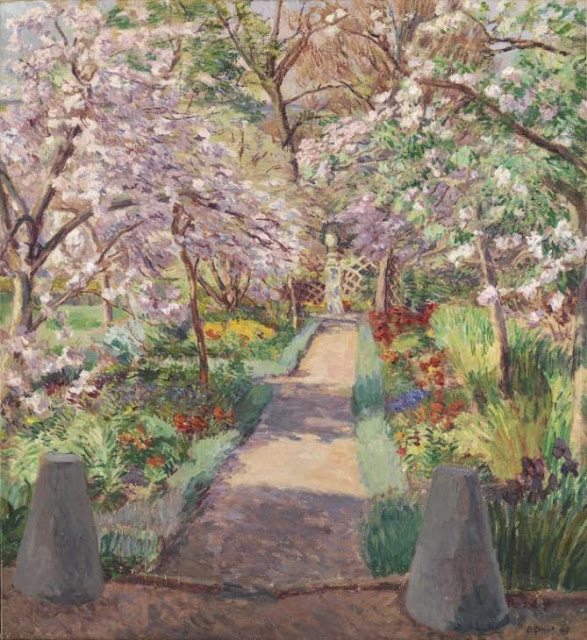But while I regret every decorative change of spring's progress, I would draw my garden plants to maturity by force of will if I could. I've been spending hours in my garden every day, digging, mulching, weeding, seeding, amending soil with old horse manure and dreaming of snap peas and and arugula salad. There I am a practical farmer, a sensible hobbit instead of a regretful, backward looking elf. The contrast in these feelings interests me.
While in the regretful, backward looking mode, I think about Robert Frost's poem "Nothing Gold Can Stay," indulging in the pretty images and the neatness of the rhymes and rhythm. In the biggest scheme of things, I don't believe this poem is altogether true, but in the spring it fits my mood.
"Nature's first green is gold,
Her hardest hue to hold.
Her early leaf's a flower;
But only so an hour.
Then leaf subsides to leaf.
So Eden sank to grief,
So dawn goes down to day.
Nothing gold can stay."
This painting by English painter Duncan Grant, 1885-1978, is from the Tate Gallery.


I love spring too. Frost's poem is so sad in a way. I'd prefer to just enjoy the flowers while we have them like Grant's painting.
ReplyDeleteYes, Frost's poem is sad. I think I enjoy it as a slightly guilty pleasure, indulging simultaneously in the beauty and sense of loss. I would enjoy it a lot less if I didn't know that the short-lived flowers of spring are coming back next year.
ReplyDelete